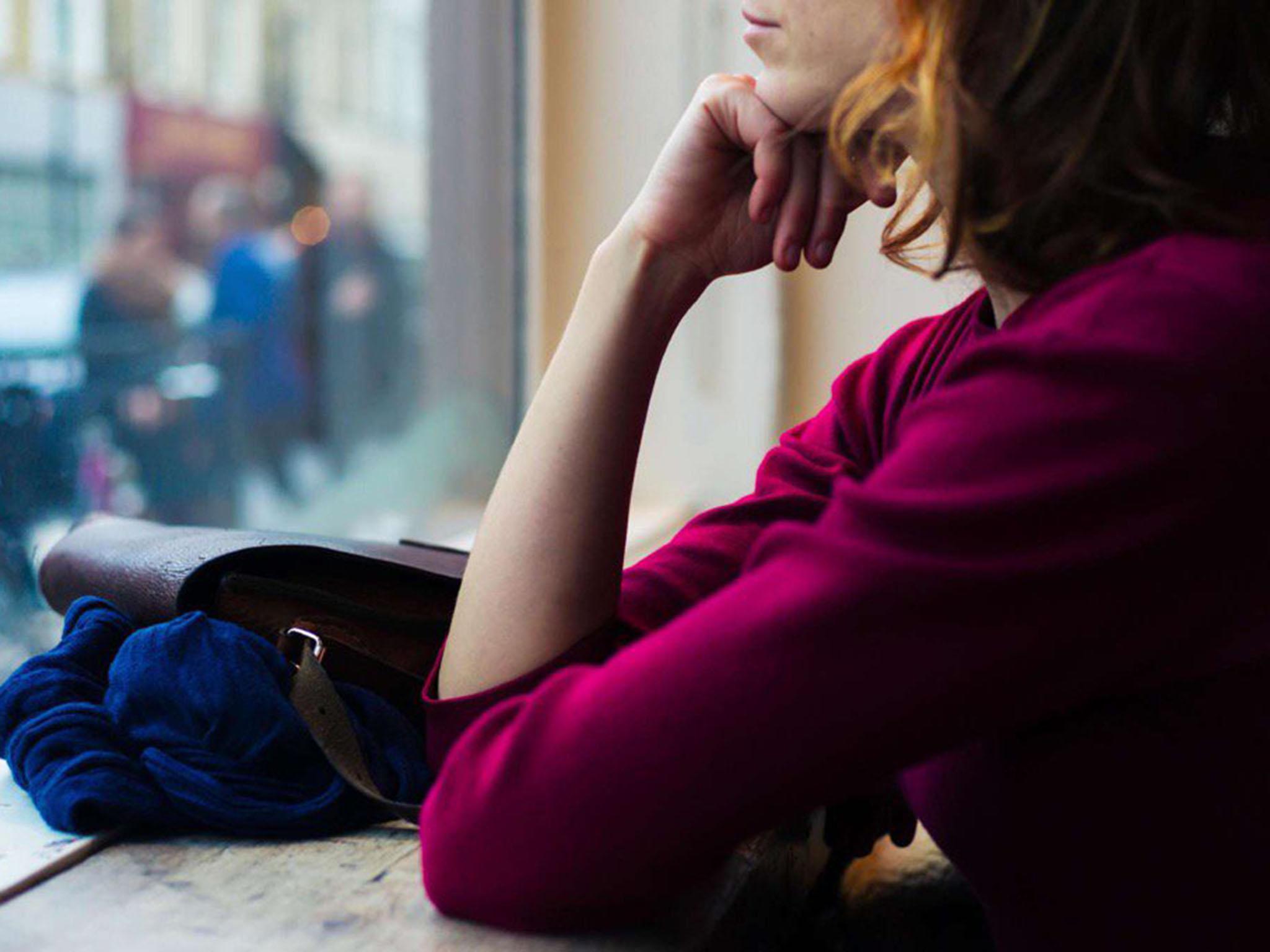I thought I'd never want children – then I fell in love at 47
The odds for live birth at that age were low, but what are statistics against the primal pull of a long-held yearning, suddenly reawakened?

Yesterday at the pool, a pregnant woman in a striped one-piece lowered herself into the lane next to mine and began to ply the water in a slow breaststroke. I couldn't take my eyes away, as if by watching I too could feel the water's support on a full belly, the freeing of tired legs. Sadness filled me, bloated me, slowed me to a float. I've never been pregnant and, at 54, I never will be. Hardly breaking news at my age, and yet only after recent surgery to remove an ovary and my fallopian tubes did the finality hit me: too late.
I've always had a complicated relationship with my fertility. When I got my period in the seventh grade, I didn't tell my mother for three days - and when I did, I burst into tears. I knew what menstruation meant, and I wanted nothing to do with its responsibilities or implications. I spent most of my twenties and thirties unattached and celibate, telling myself that I was waiting for “the right man.” The truth is, by age 30, I was so emotionally shut down from my brother's drug addiction that, when men pursued me, I fled. Yet during those years, I kept fantasising about kids' names, even if I had no father for them in sight.
And then I met my husband - at 47, after my brother's and parents' deaths, after grief and heartbreak had cracked me open. I felt blessed, and so giddy that I became careless about birth control, telling him (and myself) that I was too old. Only when a friend pointed out the obvious - that as long as I got a period, however irregular, I could get pregnant, and a risky pregnant at that - did I see what I'd been up to. Without consciously making an informed (or otherwise) decision, I'd nonetheless been playing the odds. The odds for live birth at my age were somewhere near .07 percent, but what are statistics against the primal pull of a long-held yearning, suddenly reawakened? In the fourth grade, a worn paperback edition of “Ripley's Believe It Or Not!” had made the rounds for its photographs of spiraling, two-foot-long fingernails, fused Siamese twins and the Oldest Living Woman to Give Live Birth, at 53. If she can do it, so can I! Love had found me late in life; might not motherhood do the same?
My friend's comment (and a subsequent phone call to the OB/GYN) sobered me up. Yes, my husband-to-be and I wanted to make a child together — she'd have my mother's first name; he'd have his father's throwing arm - but we knew by now that wanting doesn't guarantee getting. We had debt. We had much to learn about each other. We'd met too late, but at least we'd met. Or at least that was the larger, joyful point I focused on.
I went on the pill. We got married. I turned 50 and soon went off the pill, not having had a period in months. My husband and I made a life together. For our third anniversary, we went to Paris. All the romantic cliches came true, long overdue: strolling hand-in-hand past booksellers' stalls, kissing on canal rides, waking to pain au chocolat and fresh jus d'orange and strong coffee brought on a tray to our room. Even cranky from low blood sugar with no restaurant serving food until 7 p.m., even squabbling over where I'd put his favorite map - voilà! We were in Paris! Anything could happen! So when, one morning, I got my period, that primal longing woke up again: Of course. What better place to erase the years and return to fertility?
Back home, my doctor didn't see it that way. “Post-menopausal bleeding is always a cause for concern,” she said, reminding me that a full year without a period equals menopause. I'd gone 14 months. She ordered a sonogram, which revealed a cyst the size of a tennis ball in my left ovary. “We'll take it out, easy-peasy,” she said. “And once we're in there, we might as well take the other ovary and both tubes. It's not as if they're doing you any good.”
Tears sprang to my eyes. So much for magical thinking.
I had the surgery, my husband took time off, friends dropped off casseroles. The cyst was benign; the scars healed. I went back to sex, yoga inversions and swimming. And I kept pulling out the photos the surgeon had given me: 8 x 12s of my abdominal cavity, before and after the procedure. In the first frames, a grayish-white orb dominates; after that, what remains yawns like a cave, shiny and pink-walled, glossy as new.
Yesterday, as I watched the pregnant woman in the next lane at the pool, regret weighed down my limbs. I'd carried it for years without naming it, and now it had burst forth and I could recognise it for what it was. I picked up my pace, legs kicking and arms pulling, water buoying me as I finished my laps. Too late for a child, yes, but what might fill the space now?
Lindsey Crittenden lives in San Francisco and is the author of ‘The Water Will Hold You: A Skeptic Learns to Pray’
Join our commenting forum
Join thought-provoking conversations, follow other Independent readers and see their replies
Comments
Bookmark popover
Removed from bookmarks